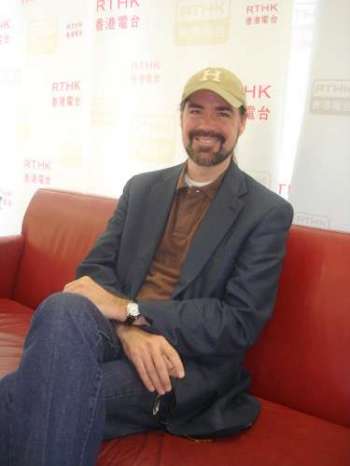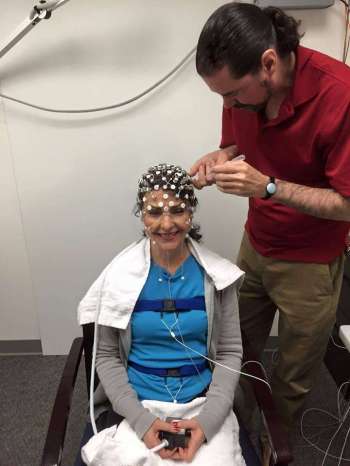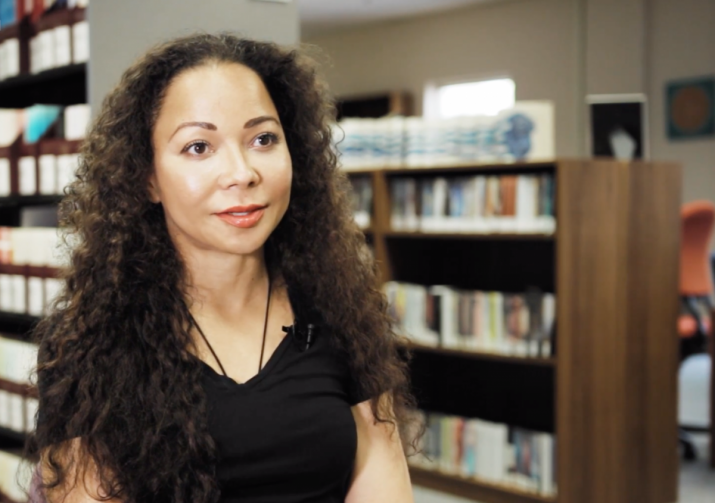
Dr. Jeffery A. Martin, founder and director of the Transformative Technology community, is an entrepreneur and social scientist who recently met with Buddhistdoor Global to discuss how his “selfish” quest to be happier turned into a worldwide investigation into the enhancement of human well-being.
The decade-long international study was sparked by Martin’s realization that, although he was not unhappy, he could also be happier. Following on from this, he sold his businesses and invested his capital into researching Fundamental Wellbeing (FW), also referred to as persistent non-symbolic experience (PNSE). Martin explains that PNSE “includes the types of consciousness commonly known as enlightenment, non-duality, the peace that passeth understanding, unitive experience, and hundreds of other terms.”
Martin goes on to explain that people from a variety of traditions experience PNSE, including “Abrahamists, Buddhists, indigenous cultures, atheists, agnostics, etc.” During his research he traveled the world to meet these individuals and spent hours interviewing them—always face to face—asking about their phenomenological experiences of the world. Laughing, Martin recalls how skeptical he was for the first couple of years of the research, half expecting that he would discover the interviewees to be “self-delusional” or “faking it.” With degrees in neuroscience and psychology under his belt, Martin investigated Fundamental Wellbeing from the perspective of cognitive science, enquiring about things such as the participants’ changes in thoughts and perceptions. He explains: “These people didn’t know each other, and I was asking them stuff that they had never been asked before.”
Over time, Martin and his team of world-class scientists and data analysts collected data that was very consistent across the board and which enabled them to create categories of Fundamental Wellbeing, many of which are outlined in his book The Finders (Integration Press 2019). Interestingly, he tells BDG that although the research was done out-with any specific tradition so as not to be biased, he later discovered that there is a significant overlap between the categories of Fundamental Wellbeing that his research team organically identified and the teachings of Buddhism.

What started out as a man’s single quest to find happiness appears to have opened a Pandora’s box of possibilities when it comes to the future of human psychology. Indeed, not only are there now courses available to help people transition into Fundamental Wellbeing, Martin also cofounded the Transformative Technology space, the largest community dedicated to the development of technologies that target human enhancement.
“We develop the most important technologies to help people transition,” Martin explains. He cites as an example transcranial ultrasound, whereby a transfuser (which he likens to a speaker) is placed near the subject’s head and directs a very focused beam of sound within a desired location of the brain. “All of that functional magnetic resonance imaging (FMRI) research that we’ve collaborated on and the electroencephalogram (EEG) research that we have done and have collaborated on, it told us what was changing and where in the brain, but we were never able to just precisely go in and tickle before. Now we can do that with transcranial ultrasound.” The downfall is that, for the time being, this technology is very expensive, so it is not available to the average individual.
Transformative Technology has a presence in 69 countries and more than 459 cities, and its goal is to support entrepreneurs, innovators, and others to develop technologies that will enhance human well-being and to make these technologies globally accessible. Martin explains: “We hope to permanently move a billion people into a state of well-being and flourishing by 2030.” He is very optimistic about the increasing number of tools that have been (and are being) developed to measure, stimulate and influence human psychology. He also praises technological advancement for its ability to reach a far larger number of people than ever before.
During the inaugural gathering of the Los Angeles chapter of the Transformative Technologies Academy (February 2019), Nichol Bradford, co-founder and executive director of Transformative Technology, emphasized the importance of being part of the conversation when it comes to progressive technologies that enhance human psychology. She posited that humanity will experience increasing issues that only technology can solve, and she is therefore very excited about these innovations.

Despite her optimism, Bradford emphasized the fact that technology is just a tool and explained that there needs to be a set of ethics around its development—such as putting in place sturdy measures for data protection—so that it can safely serve the public. She also highlighted the importance that leaders in the field are actively engaged in enhancing their own cognitive abilities, explaining that their own personal development is just as significant as what they build. She asked the audience, who consisted largely of entrepreneurs and innovators, “Are you willing to become the person that you need to be to create what the world needs you to create?” (Transtech Lab)

Keeping this in mind, I ask Martin, a leader in the field, about his lived experience when it comes to Fundamental Wellbeing. He explains that for a long time he resisted transitioning, because he was concerned it would impact his ability to carry out his project. However, once the research gathered enough momentum and he felt confident that (if need be) others could continue his work, he allowed himself to transition. “What is it like?” I ask him. “It doesn’t feel like there is a difference between you and me, or me and anything else; it’s all one thing,” he tells me.
Martin adds that, for the very first time, we are now at the stage where we can target specific locations of the brain. Just like some forms of meditation enhance certain parts of human consciousness, he envisions that Fundamental Wellbeing will become increasingly customizable. He is currently investigating whether the categories of experiences that have been collated from people in Fundamental Wellbeing are the only ones possible. He explains: “The brain has taught us what it is willing to do and has given us these methods we can use to take it to certain places. But that’s not to say that where it wants us to take it—or where it allows us to take it—are the only places.”
See more
Dr. Jeffery A. Martin
Transtech Lab
Technology Showcase (Transtech Lab)













